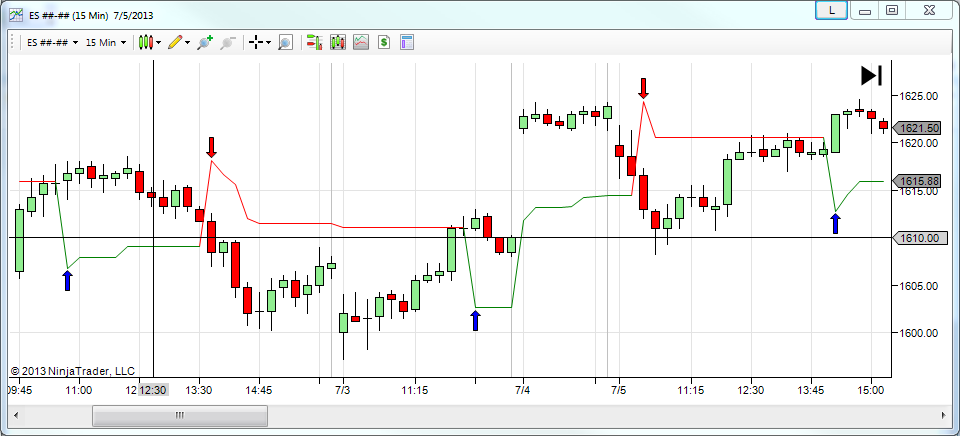If you're utilizing the Supertrend pointer in your exchanging procedure, you've likely come over the term “offset.” But what does it really mean—and how does it influence your exchanging decisions?
In this article, we’ll break down:
✅ What Supertrend is
✅ What “offset” implies in Supertrend
✅ How it influences buy/sell signals
✅ A clear case with chart analysis
Let’s disentangle Supertrend so you can exchange with more confidence.
What Is the Supertrend Indicator?
The Supertrend pointer is a well known trend-following device based on:
ATR (Normal Genuine Extend) – for measuring advertise volatility
Price activity – to identify the slant direction
It plots a line over or underneath the price:
✅ Underneath cost = Bullish flag (Buy)
❌ Over cost = Bearish flag (Sell)
When the cost crosses this line, it triggers passage or exit signals.
What Does Balanced Cruel in Supertrend?
The counterbalanced in Supertrend alludes to a move or relocation of the Supertrend line forward or in reverse on the chart.
In TradingView or comparable stages, balanced is a setting (as a rule beneath inputs) that lets you move the plotted Supertrend line by a number of candles (bars) on the chart.
Think of Counterbalanced Like This:
Offset = 0 (default) → Line is plotted straightforwardly on the current candle
Offset = 1 → Line is moved 1 bar forward (to the right)
Offset = -1 → Line is moved 1 bar in reverse (to the left)
Why Utilize Balanced in Supertrend?
The counterbalanced doesn’t alter the fundamental calculation of the Supertrend. It as it were shifts when or where it shows up on your chart.
Here’s how it impacts your trading:
Offset Visual Effect Use Case
0 Standard placement Most common setting
+1 Delays the visual signal Useful for affirmation, diminishes untrue signals
-1 Shows flag earlier Useful for backtesting or foreseeing trades
⚠️ Vital: Balanced does not alter the genuine entry/exit flag rationale. It fair changes how and where the flag looks on the chart.
Chart Investigation Illustration: Supertrend With and Without Offset
Let’s take an case utilizing Tesla (TSLA) on a 1-hour chart.
▶ Setup:
Supertrend settings:
ATR Period = 10
Multiplier = 3
Offset = 0 (at that point changed to +1 for comparison)
Illustration Breakdown:
Signal Price Action Supertrend (Balanced 0) Supertrend (Counterbalanced +1)
Bullish Crossover Price moves over Supertrend Green line begins beneath price Green line shows up 1 candle later
Bearish Crossover Price breaks underneath Supertrend Red line begins over price Red line shows up 1 candle later
What It Looks Like: 
If you're looking at TradingView:
Offset 0: Signals show up on the same bar as the crossover
Offset +1: Signals are moved one bar forward, showing up after the real hybrid happened
Utilizing an counterbalanced can offer assistance outwardly clean up your chart, particularly for introduction, screenshots, or affirmation strategies.
How Dealers Utilize Counterbalanced in Genuine Life
For Live Exchanging: Most dealers keep balanced at 0 to see real-time signals
For Affirmation Techniques: A few utilize +1 balanced to dodge responding to fakeouts
For Backtesting: Counterbalanced -1 can offer assistance visualize prior responses for ponder

